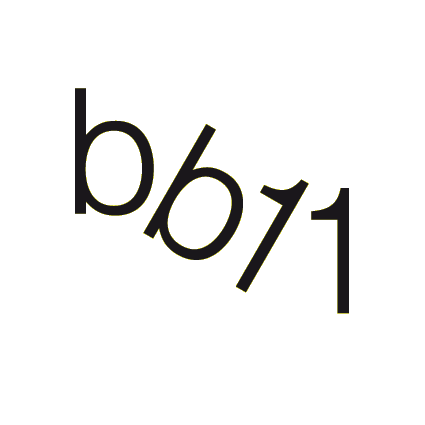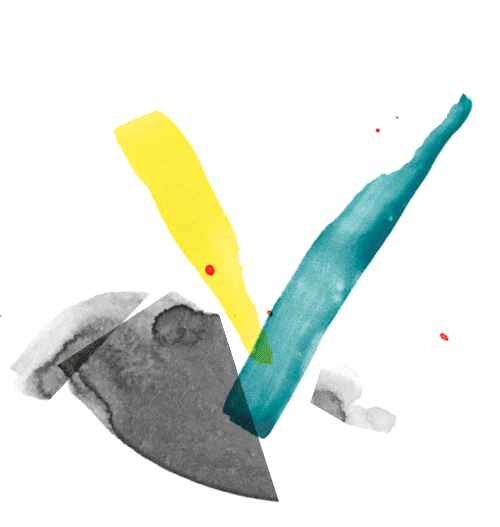

Sign up for our newsletters. You can change the settings or unsubscribe at any time.
Thank you for your subscription. We have sent you an e-mail with a confirmation link.


exp. 1
exp. 2
exp. 3

Teatro da Vertigem
Venue: KW Institute for Contemporary Art
Was also part of: exp. 1
Teatro da Vertigem
Founded 1992 in São Paulo, BR – live and work in São Paulo
Antônio Araújo, born in Uberaba, Minas Gerais, BR
Renato Bolelli Rebouças, born in São Paulo
Guilherme Bonfanti, born in Leme, São Paulo
Rachel Brumana, born in Juiz de Fora, BR
Antonio Duran, born in São Paulo
Eliana Monteiro, born in São Paulo
Nuno Ramos, born in São Paulo
Eryk Rocha, born in Brasília, BR
Erico Theobaldo, born in São Paulo
Tuesday August 4, 2020, 9:30 pm: A funerary procession of around 120 cars tries to push its way through Paulista Avenue, a frequent stage for demonstrations in the financial center of São Paulo, in reverse gear for the nearly seven-kilometer trajectory towards Consolação Cemetery. Teatro da Vertigem’s Marcha à ré [Reverse Gear] is a performance developed with artist Nuno Ramos and filmed by Eryk Rocha. The piece addresses the necropolitics of the far-right populist regime in Brazil, currently engaged in a genocide of its own population.
The piece was conceived in response to works by Flávio de Carvalho. The first is Série Trágica [Tragic Series], a striking series of drawings portraying the mother of the artist in her deathbed. In the context of the Covid-19 pandemic, her agony represents the right to mourn the thousands of deaths ignored by the government’s authoritarian and negligent response to the health crisis. The second is Experiência no.2, realizada sobre uma procissão de Corpus Christi [Experience no.2, realized on a Corpus Christi procession, 1931], where Carvalho tried to study the reaction of the crowd as he walked in the opposite direction to the worshippers. Due to the Covid-19 pandemic, Teatro da Vertigem’s original plans to come to Berlin and perform a new piece, titled Teologias da Prosperidade [Theologies of Prosperity] unfortunately had to be cancelled.
Teatro da Vertigem is a theater group whose trajectory began with their Biblical trilogy—O Paraíso Perdido [The Lost Paradise, 1992], O Livro de Jó [The Book of Job, 1995] and Apocalypse 1,11 (2000). Their plays and performances avoid conventional stages and opt instead for urban landscapes (streets, rivers) and buildings (churches, hospitals, prisons) inhabited by imponderable elements.
Lisette Lagnado
Glossary of Common Knowledge
L’Internationale Online
Glossary
BLM KOREA ARTS
#BlackLivesMatter #BLMKoreaArts
Young-jun Tak
Statement
Maternidades subversivas
María Llopis
Monograph
St Sara Kali George
Delaine Le Bas
Soundscape
Being in Crisis together – Einander in Krisen begegnen
Feminist Health Care Research Group (Inga Zimprich/Julia Bonn)
Online workshop
Flávio de Carvalho: Fazenda Capuava
Archive of Lisette Lagnado
Photographs
By using this website you agree to the use of cookies in accordance with our data privacy policy.

Teatro da Vertigem
Venue: KW Institute for Contemporary Art
Was also part of: exp. 1
Teatro da Vertigem
Founded 1992 in São Paulo, BR – live and work in São Paulo
Antônio Araújo, born in Uberaba, Minas Gerais, BR
Renato Bolelli Rebouças, born in São Paulo
Guilherme Bonfanti, born in Leme, São Paulo
Rachel Brumana, born in Juiz de Fora, BR
Antonio Duran, born in São Paulo
Eliana Monteiro, born in São Paulo
Nuno Ramos, born in São Paulo
Eryk Rocha, born in Brasília, BR
Erico Theobaldo, born in São Paulo
Tuesday August 4, 2020, 9:30 pm: A funerary procession of around 120 cars tries to push its way through Paulista Avenue, a frequent stage for demonstrations in the financial center of São Paulo, in reverse gear for the nearly seven-kilometer trajectory towards Consolação Cemetery. Teatro da Vertigem’s Marcha à ré [Reverse Gear] is a performance developed with artist Nuno Ramos and filmed by Eryk Rocha. The piece addresses the necropolitics of the far-right populist regime in Brazil, currently engaged in a genocide of its own population.
The piece was conceived in response to works by Flávio de Carvalho. The first is Série Trágica [Tragic Series], a striking series of drawings portraying the mother of the artist in her deathbed. In the context of the Covid-19 pandemic, her agony represents the right to mourn the thousands of deaths ignored by the government’s authoritarian and negligent response to the health crisis. The second is Experiência no.2, realizada sobre uma procissão de Corpus Christi [Experience no.2, realized on a Corpus Christi procession, 1931], where Carvalho tried to study the reaction of the crowd as he walked in the opposite direction to the worshippers. Due to the Covid-19 pandemic, Teatro da Vertigem’s original plans to come to Berlin and perform a new piece, titled Teologias da Prosperidade [Theologies of Prosperity] unfortunately had to be cancelled.
Teatro da Vertigem is a theater group whose trajectory began with their Biblical trilogy—O Paraíso Perdido [The Lost Paradise, 1992], O Livro de Jó [The Book of Job, 1995] and Apocalypse 1,11 (2000). Their plays and performances avoid conventional stages and opt instead for urban landscapes (streets, rivers) and buildings (churches, hospitals, prisons) inhabited by imponderable elements.
Lisette Lagnado
Struggle as Culture: The Museum of Solidarity, 1971–73
María Berríos
Essay
Expresiones de la locura: el arte de los enfermos mentales
Hans Prinzhorn
Monograph
Feminist Health Care Research Group
Web archive
St Sara Kali George
Delaine Le Bas
Soundscape
THE MOBILIZATION
Nicolás Cuello
Text
El primer nueva corónica y buen gobierno
Felipe Guamán Poma de Ayala
Chronicle
By using this website you agree to the use of cookies in accordance with our data privacy policy.

Teatro da Vertigem
Venue: KW Institute for Contemporary Art
Was also part of: exp. 1
Teatro da Vertigem
Founded 1992 in São Paulo, BR – live and work in São Paulo
Antônio Araújo, born in Uberaba, Minas Gerais, BR
Renato Bolelli Rebouças, born in São Paulo
Guilherme Bonfanti, born in Leme, São Paulo
Rachel Brumana, born in Juiz de Fora, BR
Antonio Duran, born in São Paulo
Eliana Monteiro, born in São Paulo
Nuno Ramos, born in São Paulo
Eryk Rocha, born in Brasília, BR
Erico Theobaldo, born in São Paulo
Tuesday August 4, 2020, 9:30 pm: A funerary procession of around 120 cars tries to push its way through Paulista Avenue, a frequent stage for demonstrations in the financial center of São Paulo, in reverse gear for the nearly seven-kilometer trajectory towards Consolação Cemetery. Teatro da Vertigem’s Marcha à ré [Reverse Gear] is a performance developed with artist Nuno Ramos and filmed by Eryk Rocha. The piece addresses the necropolitics of the far-right populist regime in Brazil, currently engaged in a genocide of its own population.
The piece was conceived in response to works by Flávio de Carvalho. The first is Série Trágica [Tragic Series], a striking series of drawings portraying the mother of the artist in her deathbed. In the context of the Covid-19 pandemic, her agony represents the right to mourn the thousands of deaths ignored by the government’s authoritarian and negligent response to the health crisis. The second is Experiência no.2, realizada sobre uma procissão de Corpus Christi [Experience no.2, realized on a Corpus Christi procession, 1931], where Carvalho tried to study the reaction of the crowd as he walked in the opposite direction to the worshippers. Due to the Covid-19 pandemic, Teatro da Vertigem’s original plans to come to Berlin and perform a new piece, titled Teologias da Prosperidade [Theologies of Prosperity] unfortunately had to be cancelled.
Teatro da Vertigem is a theater group whose trajectory began with their Biblical trilogy—O Paraíso Perdido [The Lost Paradise, 1992], O Livro de Jó [The Book of Job, 1995] and Apocalypse 1,11 (2000). Their plays and performances avoid conventional stages and opt instead for urban landscapes (streets, rivers) and buildings (churches, hospitals, prisons) inhabited by imponderable elements.
Lisette Lagnado
THE MOBILIZATION
Nicolás Cuello
Text
Hatred Among Us
Lisette Lagnado
Essay
Género y colonialidad en busca de claves de lectura y de un vocabulario estratégico descolonial
Rita Segato
Essay
COVID-19 VIDEOS
Carlos Motta
Video
Umbilical Cord Amulet
McCord Museum
Object
Museo de la Solidaridad Salvador Allende (MSSA) in Berlin
A conversation between María Berríos and Melanie Roumiguière
Conversation
By using this website you agree to the use of cookies in accordance with our data privacy policy.

Teatro da Vertigem
Venue: KW Institute for Contemporary Art
Was also part of: exp. 1
Teatro da Vertigem
Founded 1992 in São Paulo, BR – live and work in São Paulo
Antônio Araújo, born in Uberaba, Minas Gerais, BR
Renato Bolelli Rebouças, born in São Paulo
Guilherme Bonfanti, born in Leme, São Paulo
Rachel Brumana, born in Juiz de Fora, BR
Antonio Duran, born in São Paulo
Eliana Monteiro, born in São Paulo
Nuno Ramos, born in São Paulo
Eryk Rocha, born in Brasília, BR
Erico Theobaldo, born in São Paulo
Tuesday August 4, 2020, 9:30 pm: A funerary procession of around 120 cars tries to push its way through Paulista Avenue, a frequent stage for demonstrations in the financial center of São Paulo, in reverse gear for the nearly seven-kilometer trajectory towards Consolação Cemetery. Teatro da Vertigem’s Marcha à ré [Reverse Gear] is a performance developed with artist Nuno Ramos and filmed by Eryk Rocha. The piece addresses the necropolitics of the far-right populist regime in Brazil, currently engaged in a genocide of its own population.
The piece was conceived in response to works by Flávio de Carvalho. The first is Série Trágica [Tragic Series], a striking series of drawings portraying the mother of the artist in her deathbed. In the context of the Covid-19 pandemic, her agony represents the right to mourn the thousands of deaths ignored by the government’s authoritarian and negligent response to the health crisis. The second is Experiência no.2, realizada sobre uma procissão de Corpus Christi [Experience no.2, realized on a Corpus Christi procession, 1931], where Carvalho tried to study the reaction of the crowd as he walked in the opposite direction to the worshippers. Due to the Covid-19 pandemic, Teatro da Vertigem’s original plans to come to Berlin and perform a new piece, titled Teologias da Prosperidade [Theologies of Prosperity] unfortunately had to be cancelled.
Teatro da Vertigem is a theater group whose trajectory began with their Biblical trilogy—O Paraíso Perdido [The Lost Paradise, 1992], O Livro de Jó [The Book of Job, 1995] and Apocalypse 1,11 (2000). Their plays and performances avoid conventional stages and opt instead for urban landscapes (streets, rivers) and buildings (churches, hospitals, prisons) inhabited by imponderable elements.
Lisette Lagnado
Género y colonialidad en busca de claves de lectura y de un vocabulario estratégico descolonial
Rita Segato
Essay
Expresiones de la locura: el arte de los enfermos mentales
Hans Prinzhorn
Monograph
Flávio de Carvalho: Fazenda Capuava
Archive of Lisette Lagnado
Photographs
Solidarity and Storytelling. Rumors against Enclosure
María Berríos
Essay
Queer Ancient Ways: A Decolonial Exploration
Zairong Xiang
Monograph
Being in Crisis together – Einander in Krisen begegnen
Feminist Health Care Research Group (Inga Zimprich/Julia Bonn)
Online workshop
By using this website you agree to the use of cookies in accordance with our data privacy policy.
By using this website you agree to the use of cookies in accordance with our data privacy policy.




